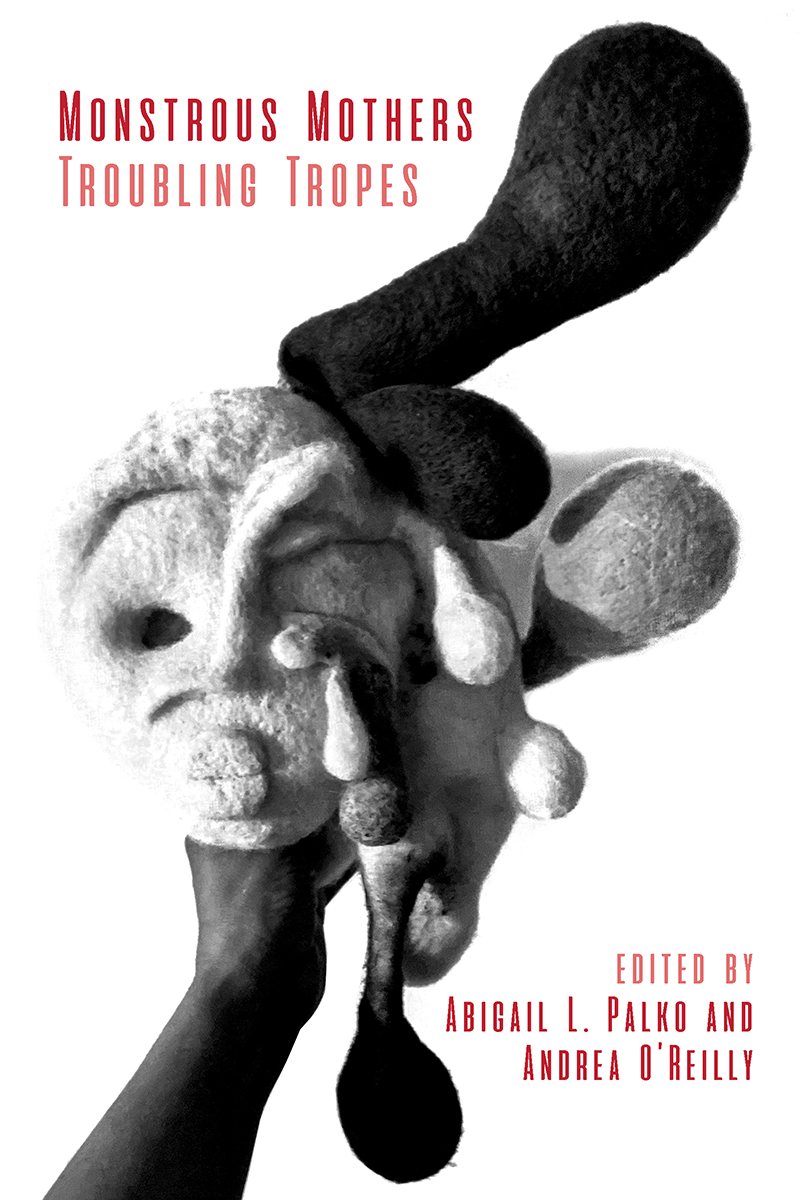
Price: $39.95
Page Count: 292
Publication Date: September 2021
ISBN: 978-1-77258-333-5
This collection asks us to do a hard thing: to look at, not away, from the monstrous mother. In probing essays, the contributors and editors ask readers to consider what conditions create the monstrous mother, and if so-called monstrous mothers really are monstrous. Products of the patriarchal construction of motherhood, victims of neoliberal privileging of the individual over community (and lack of societal supports), as well as personal variables create the monstrous mother, and all such mothers in this collection are deserving of another look, and often, our empathy. An important collection for those who study mothers, and those who wish to see social growth and change in the promulgation of empowered mothering.
- Nicole L. Willey, Professor of English, Kent State University
Monstrous Mothers: Troubling Tropes is a difficult read, but that is only because the authors in this edited volume challenge readers to hear the stories of mothers who have been deemed irredeemable, transgressive, incomprehensible--in short, monstrous. In each chapter the authors trouble this narrative as they expose readers to maternal violences of loss, abandonment, ambivalence, abuse, and murder in historical and contemporary texts and media. The deeper we engage these rich, diverse analyses the more we come to understand that the horror is not the monstrosity of the mothers, but their scapegoating as bad mothers. By showing us who the mothers are, by unpacking the context within which they have mothered, the authors in this volume ultimately expose the unsustainable, nay, monstrous lies we have been told about motherhood itself.
- Michelle Hughes Miller, Professor of Women’s and Gender Studies, University of South Florida
Monstrous Mothers peers into the dark cavern of mothers who are too often shunned without exploration or nuance.
- Katie B. Garner, Executive Director, IAMAS
Acknowledgments
3
Introduction
Abigail L. Palko
9
Part I
Precarious Mothering
21
1.
Patchwork Girl—Fractured Maternal Monsters
Anitra Goriss-Hunter
23
2.
In Search of Laura’s Story:
Decolonial Love and Indigenous Mothers of Missing Children
Josephine L. Savarese
39
3.
“Science Put Babies in My Belly”:
Cyborg Mothering and Posthumanism in Orphan Black
Susan Harper and Jessica Smartt Gullion
63
6
MONSTROUS MOTHERS: TROUBLING TROPES
4.
The Maternal Maleficent
Abigail L. Palko
85
Part II
Maternal Violence
105
5.
“She Laughed at Anything”: The Portrayal of the
Monstrous Maternal in Anna Burns’s No Bones
Shamara Ransirini
107
6.
Central Intelligence and Maternal Mental Health:
The Apparently Aberrant Bad Mother in Homeland
Aidan Moir
127
7.
Karla Homolka under Maternal Surveillance:
A Critical Analysis of Mainstream and Social Media Portrayals
of a Released “Monster” Who Became a Mom of Three
Rebecca Jaremko Bromwich
147
8.
“A Victim Twice”:
Maternal Violence in the Poetry of Ai
Jessica Turcat
161
Part III
Mothers Made Monstrous
181
7
CONTENTS
9.
The Monstrosity of Maternal Abandonment in the
Literature of Women Writers from the American South
Jennifer Martin
183
10.
“What Is Incomprehensible”:
The Myth of Maternal Omniscience and the Judgment
of Maternal Culpability in Sue Klebold’s A Mother’s
Reckoning and Monique Lépine’s Aftermath
Andrea O’Reilly
201
11.
Monster Mothers and Mother Monsters from
Dracula to Stranger Things
Melissa Dinsman
223
12.
“The Terror of Mothering”:
Maternal Ambiguities and Vulnerabilities in Helen Phillips’s
The Need and Melanie Golding’s Little Darlings
Andrea O’Reilly
243
Coda
A Trace of What It Is Not:
The Hauntings of the Monstrous Mother
Andrea O’Reilly
269
Notes on the Contributors
279
About the Cover Artist
283
Abigail L. Palko is the Director of the Maxine Platzer Lynn Women's Center at the University of Virginia. Her teaching, research, and writing focuses on representations of mothering practices. She is the author of Imagining Motherhood in Contemporary Irish and Caribbean Literature (2016, Palgrave Macmillan) and co-editor of Mothers, Mothering and Globalization, Cultural Representations of Breastfeeding (2017 and 2018, both Demeter Press), and Feminist Responses to the Neoliberalization of the University (Lexington Books, 2020). The joy of her life is raising a strong feminist daughter with her partner.
Dr. Andrea O'Reilly is Professor in the School of Gender, Sexuality and Women's Studies at York University, founder/editor-in-chief of the Journal of the Motherhood Initiative and publisher of Demeter Press. She is co-editor/editor of twenty books including Feminist Parenting: Perspectives from Africa and Beyond and The Routledge Companion to Motherhood and author of three monographs including Matricentric Feminism: Theory Activism and Practice. She is twice the recipient of York University's Professor of the Year Awardâ for teaching excellence and is the 2019 recipient of the Status of Women and Equity Award of Distinction from OCUFA (Ontario Confederation of University Faculty Associations).She is the mother of three adult children.


